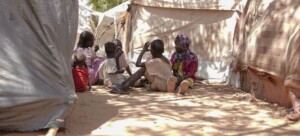Activists: ‘Rift Valley Fever epidemic’ in Sudan’s Northern State
The United Resistance Coordination of Merowe in the Northern State announced that the number of deaths from Rift Valley Fever* has risen to 79, while the number of recorded cases has reached 1,962, including three cases of nervous system complications. 4,578 miscarriages and deaths have been recorded among livestock.
 (Source: healthforanimals.org)
(Source: healthforanimals.org)
The United Resistance Coordination of Merowe in the Northern State announced that the number of deaths from Rift Valley Fever* has risen to 79, while the number of recorded cases has reached 1,962, including three cases of nervous system complications. 4,578 miscarriages and deaths have been recorded among livestock.
The Coordination calls on the Sudanese Ministry of Health and the Ministry of Animal Resources to declare an epidemic of Rift Valley Fever and to open the door for international and voluntary organisations to intervene and assist.
In a statement on Wednesday, the Merowe activists expressed their regret about “the Ministry of Health’s concealment of the Rift Valley Fever epidemic despite taking samples since September 19.”
They warned the Northern State government against being lax in dealing with the disease so that it would not spread to other areas.
They further called on people from Merowe and others from Northern State living in Khartoum to join the protest vigil in front of the Ministry of Health in Khartoum today.
On Wednesday, the Northern State Ministry of Health briefed the state government, headed by Governor Amal Ezzeldin on the overall health conditions and the official and popular efforts made to confront fevers in the localities of Merowe and Ed Debba.
According to the Ministry, the total cases of fevers in Merowe and Ed Debba in the Northern State reached 1,493, including 63 deaths.
Doctor Abuzir Idris, Director General of the Ministry of Health in the Northern State, confirmed in a press conference held on Wednesday in Dongola that “the health situation in the state has stabilised”.
He indicated that, after two weeks from now, field surveys for the disease will be made, and after three months, field vaccination for the disease will be considered in accordance with the plan and guidelines of the World Organisation for Animal Health.
In the past, ‘fevers accompanied by bleeding’ turned out to be chikungunya, a mosquito-borne fever that can cause death. Two years ago, dozens of people died in Kassala as a result of chikungunya infections. Last week, 41 cases of chikungunya were reported in West Darfur.
*Rift Valley Fever – Key facts:
- Rift Valley fever (RVF) is a viral zoonosis that primarily affects animals but can also infect humans.
- The majority of human infections result from contact with the blood or organs of infected animals.
- Human infections have also resulted from the bites of infected mosquitoes.
- To date, no human-to-human transmission of RVF virus has been documented.
- The incubation period (the interval from infection to onset of symptoms) for RVF varies from 2 to 6 days.
- Outbreaks of RVF in animals can be prevented by a sustained programme of animal vaccination.
Radio Dabanga’s editorial independence means that we can continue to provide factual updates about political developments to Sudanese and international actors, educate people about how to avoid outbreaks of infectious diseases, and provide a window to the world for those in all corners of Sudan. Support Radio Dabanga for as little as €2.50, the equivalent of a cup of coffee.












 and then
and then